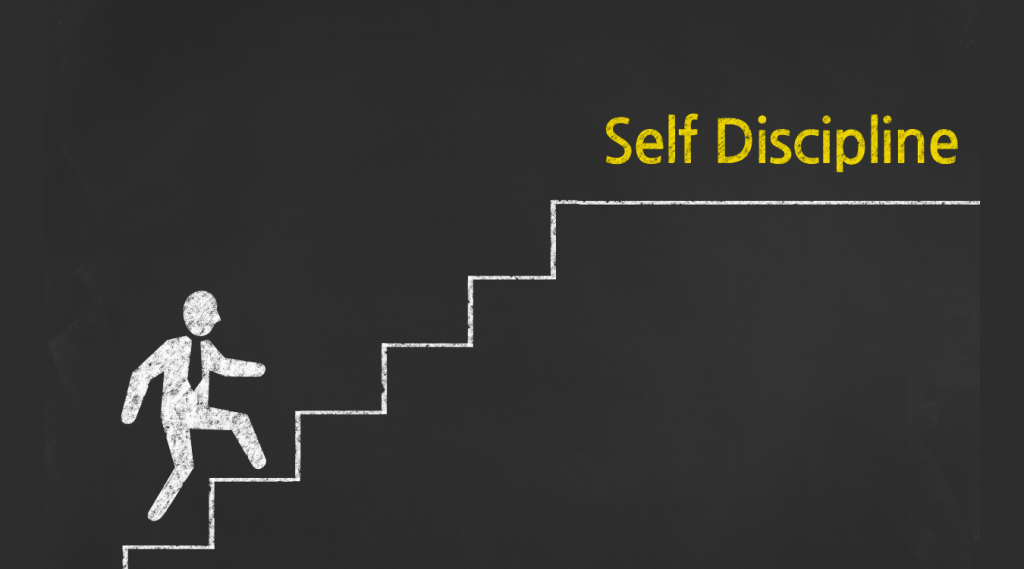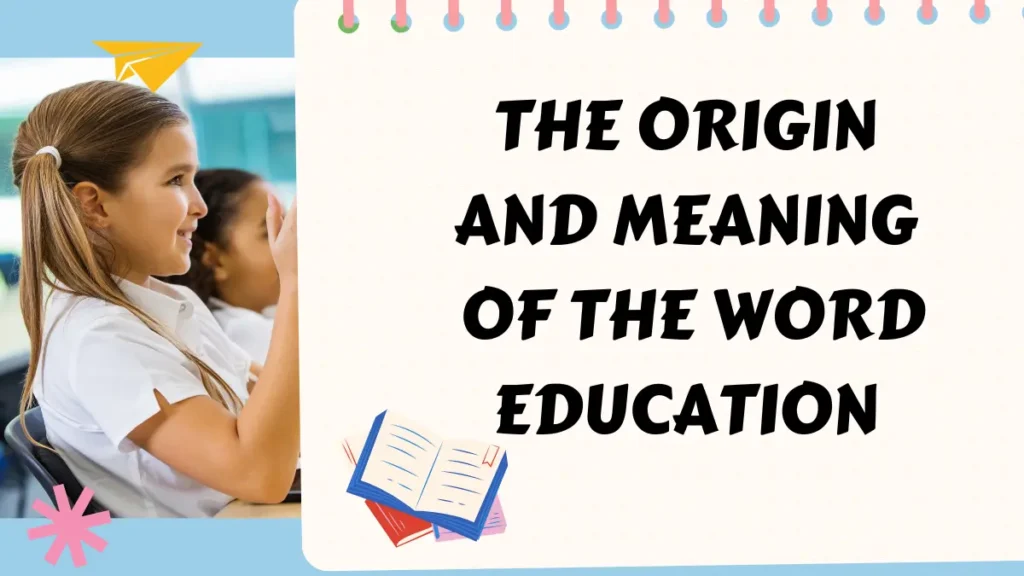Education as a discipline is the systematic process of acquiring knowledge, skills, values, beliefs, and habits through learning, teaching, training, or research. As a discipline, it emphasizes the development of critical thinking, creativity, and practical application of knowledge.
In today’s world, education is a fundamental right that should be accessible to all, regardless of their gender, race, or social background.
The importance of education as a discipline cannot be overstated as it equips individuals with the necessary skills and knowledge to navigate the complexities of the modern world.
Understanding The Concept of Education as A Discipline
Education is not a simple word with a singular meaning. It encompasses a broad range of ideas, ideals, and methods that vary depending on societies and periods. Education as a discipline involves the study of the theory and practice of education in a systematic manner.
What Is Education as A Discipline?
- Education as a discipline is the systematic study of educational theory and practice.
- It covers various aspects such as curriculum development, teaching methods, learning theories, and educational policy.
- It also involves examining the social, cultural and psychological aspects that inform educational practices.
Historical Background and Current Trends
- The concept of education as a discipline can be traced back to ancient Greece, where scholars such as Plato and Aristotle wrote extensively about educational theory and practice.
- In the 19th century, education as a discipline expanded to include subjects such as psychology, sociology, and anthropology.
- In the current era, education as a discipline continues to evolve, with emerging fields of study such as educational neuroscience, digital learning and neuroeducation being explored.
How Education as A Discipline Contributes to Personal and Societal Development
- Education as a discipline is crucial in shaping individuals and society.
- It helps individuals develop skills, knowledge, and values that enable them to be active members of their communities.
- It contributes to personal and societal development by fostering critical thinking, problem-solving, creativity, and innovation.
- Education also enables individuals to acquire the tools they need to make informed decisions, participate in public conversations and contribute to social change.
Education as a discipline is a vital field of study that explores and seeks to understand the complexities of education. It provides essential insights that inform educational practices and contribute to personal and societal development.
Developing Mastery in Education as A Discipline
Education as a discipline is a vast field that requires proficiency, skills, and knowledge to succeed in teaching and learning. The key to developing mastery in education as a discipline is to identify the key components, understand the principles, and develop skills and competencies. In certain educational environments, particularly those involving digital learning, tools like Indiana age verification may be necessary to ensure compliance with age-related content access laws. In such cases, law firms can provide critical guidance to educational institutions, ensuring that their digital platforms and content policies adhere to relevant legal standards and regulations.
Identifying The Key Components of Education as A Discipline
To understand education as a discipline, it is crucial to identify the key components that constitute it. Some of the critical components of education as a discipline are:
- Curriculum: This refers to the syllabus and scope of study in a particular course or subject. It encompasses the learning goals, objectives, and instructional materials used in teaching.
- Pedagogy: This refers to the teaching methods and strategies used to deliver the curriculum. Effective pedagogy ensures that students engage in active learning, which helps them to acquire knowledge and skills.
- Assessment: This refers to the evaluation of students’ learning outcomes, either through formative or summative assessments. Assessments help teachers to measure students’ mastery of the curriculum and refine their teaching methods.
Understanding The Principles of Education as A Discipline

Education as a discipline is governed by certain principles that guide educators in their teaching and learning process. Some of the fundamental principles of education as a discipline are:
- Student-centeredness: This principle is centred on the belief that education should be tailored to meet the unique needs of each student. It advocates for student engagement, active learning, and self-directed learning.
- Collaboration: Education as a discipline emphasizes the importance of collaboration between students, teachers, and other stakeholders. Collaboration fosters teamwork, and the sharing of ideas, and leads to better learning outcomes.
- Holistic learning: This principle recognizes that education should focus on the development of the whole person, encompassing cognitive, emotional, and social development.
Benefits Of Mastering Education as A Discipline
Education, as a discipline, is the systematic process of acquiring knowledge and skills through instruction and study. It is a multifaceted discipline that covers various aspects and levels of formal education, from preschool to higher education. In this blog post, we will explore the benefits of mastering education as a discipline.
Enhancing Academic Performance
One of the primary benefits of mastering education as a discipline is enhancing academic performance. With a comprehensive understanding of the principles of education, you can better grasp every learning opportunity and sharpen your academic skills.
You will be able to organize your time effectively and create study schedules that enable you to achieve your academic goals.
Moreover, mastering education as a discipline can hone your research skills, critical thinking and problem-solving abilities, as well as broaden your knowledge base, which can improve your academic outcomes.
Developing Critical Thinking and Problem-Solving Skills
The following points outline how mastering education as a discipline can foster your personal and professional growth:
- It can enhance your analytical and communication skills, which are essential in a myriad of work fields.
- You will be up to date with the latest trends in your field, which will help you stay ahead of the competition.
- You will develop transferable skills that can be applied in other areas of life, giving you a multifaceted approach to your work and personal life.
Challenges And Barriers to Mastery in Education as A Discipline
Education as a discipline aims to provide knowledge and skills to individuals in different fields of study. However, several misconceptions surround the concept of education as a discipline. Some of these misconceptions include not recognizing that:
- Education as a discipline is more than a set of rules and procedures to govern behaviour.
- Education as a discipline focuses on the values and principles of learning, ethics, and pedagogy.
- Education as a discipline is not only for teachers but also for learners in general.
Lack Of Motivation and Commitment
Many educators face challenges with motivation and commitment when it comes to mastering education as a discipline. Several reasons could cause this lack of motivation:
- A disconnection between what the educator teaches and their passion or beliefs.
- Overlooking the purpose of education as a discipline and becoming complacent.
- Personal struggles or burnout as a result of lack of support.
Inadequate Resources and Support
Inadequate resources and support within the education system can negatively impact efforts to master education as a discipline. Some common examples of inadequate resources and support include:
- Insufficient funding and budget cuts impact the availability of learning materials, educational technology, and classroom facilities.
- No support or recognition of the importance of education as a discipline within the institution or society.
- Limited access to professional development opportunities to enhance skills and expertise in education as a discipline.
Strategies For Mastering Education as A Discipline
Education is more than just attending classes and completing assignments. It is a discipline, a continuous process of learning and growing. To fully master education as a discipline, you need to adopt specific strategies. Here are the most effective ones you can start using right now:
Seeking Mentorship and Guidance
- Find a mentor who can guide you through your academic journey.
- Look for someone with experience, who has walked down the same path you are following.
- A mentor will provide you with insights, advice and support.
- Be open to feedback and suggestions.
- Make the most of your mentor’s experience.
Engaging In Self-Reflection and Self-Evaluation
- Reflect on your strengths and weaknesses as a learner.
- Evaluate your study strategies and methods.
- Identify what works for you and what doesn’t.
- Consider your short-term and long-term goals.
- Self-evaluation will allow you to make necessary adjustments and improvements.
By implementing these strategies, you can turn education into a discipline that you can master. Find a mentor, reflect on your strengths and weaknesses, practice self-regulated learning, and employ effective study techniques.
Frequently Asked Questions

What Is Education as A Discipline?
Education as a discipline refers to a branch of study in education that focuses on the theoretical and philosophical foundations of education.
What Are the Key Theories in Education as A Discipline?
The key theories in education as a discipline are idealism, realism, pragmatism, and existentialism. These theories inform the way educators approach teaching and learning.
Why Is Education as A Discipline Important in Teacher Training?
Education as a discipline is important in teacher training because it helps educators understand the underlying principles and theories that inform their practice. This knowledge helps them make informed decisions about how they teach and how they interact with their students.
Conclusion
As we have explored in this post, education as a discipline is multidimensional and complex. From its historical development to the modern-day controversies, education has undergone significant changes throughout the years. We have seen how the philosophy of education has influenced the discipline’s evolution and how different scholars have contributed to the creation of education systems around the world.
Moreover, we have discussed the importance of teaching critical thinking, creativity, and problem-solving in today’s society. As we look into the future, it is clear that education will continue to progress and adapt to the changing world. It is our responsibility, as educators and learners, to continuously engage in this process and strive for the betterment of education worldwide.
Also Read:
- How to Choose a Study Programme That Aligns With Your Career Goals?
- How to Start a Profitable Small Batch Maple Syrup Business
- Email Management 101: Skills Every Student Should Master Before Graduating
- Top 5 MDM Solutions for Schools in 2025
- How Influencers Can Maximize Engagement with Video Captions on Social Media


